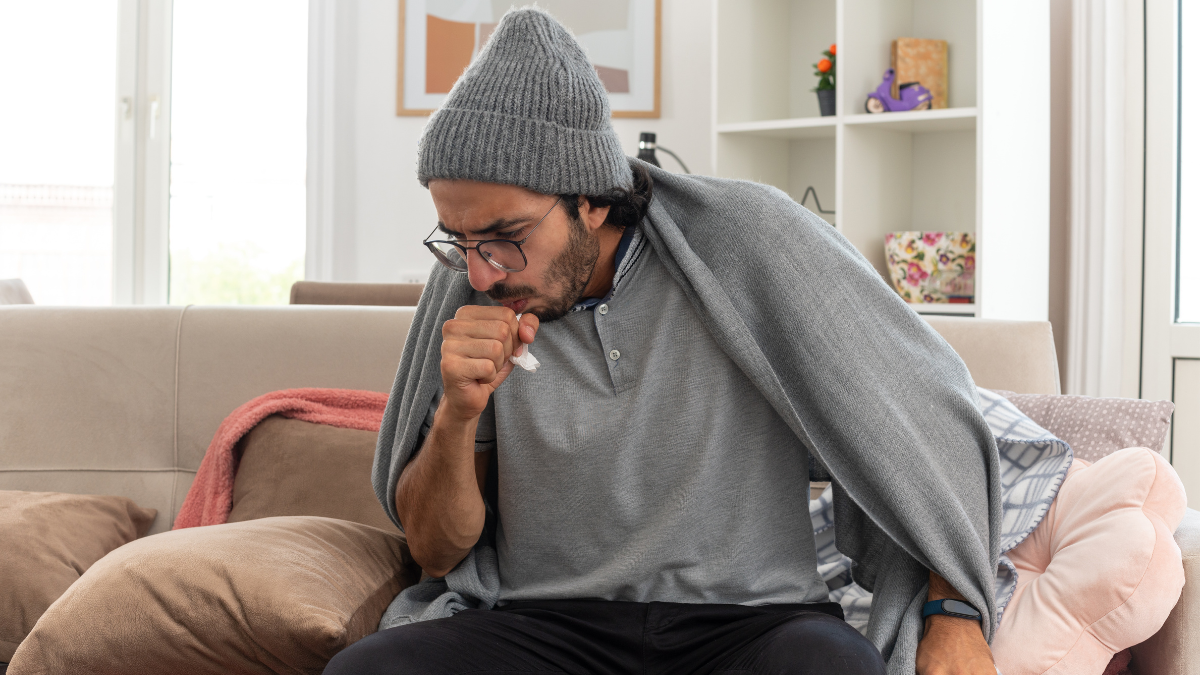
Pneumonia continues to be a silent killer. It reportedly claims over 2.5 million lives every year worldwide. One of the main symptoms of pneumonia is cough. But we are living in a time and age, where cold and cough are way too common – so much so, that it becomes difficult to differentiate between a normal cough and something serious like pneumonia. Fret not! Today, on World Pneumonia Day 2025, we are going to help you understand how to differentiate between the two.
Table of Content:-
To get a better understanding on this topic, we reached out to experts – Dr Harshil Alwani, Consultant - Pulmonology, CK Birla Hospitals, Jaipur and Dr Raja Dhar, Director and HOD - Pulmonology, CMRI Kolkata.
Normal Cough Vs Pneumonia Cough: How To Identify?
Dr Alwani says that a cough is one of the most common reasons people visit a doctor — but it’s important to remember that not every cough points to pneumonia. “Most often, a cough caused by a simple viral infection, cold, or allergy settles down within a week or ten days. It may come with a stuffy nose, mild throat irritation, or a bit of phlegm, but the overall discomfort tends to ease gradually,” he adds.
The expert further explains, “Pneumonia, on the other hand, feels very different. The cough usually lingers and becomes more intense, often bringing up yellow or green sputum. Fever, chills, chest pain when breathing, and a feeling of breathlessness are strong warning signs. If someone starts feeling unusually tired, breathing rapidly, or seems confused — particularly older adults — these are definite red flags that need immediate attention.”
But what causes pneumonia? “Certain groups are more vulnerable: children, the elderly, smokers, and people with chronic lung or heart conditions. Exposure to air pollution, sudden weather changes, or poorly ventilated environments can also make the lungs more prone to infection,” answers the expert.
Symptoms And Detection Of Pneumonia
Now, let us try and understand how one can detect pneumonia. “What makes pneumonia tricky is that it doesn’t always follow a textbook pattern. In elderly individuals or people with diabetes, heart disease, or weakened immunity, pneumonia can appear without high fever or severe cough. Sometimes, it presents quietly — just a decline in energy, loss of appetite, or mild breathlessness — which is why it’s so important not to ignore subtle changes,” shares Dr Alwani.
Speaking about detection, he says, “A chest X-ray remains the simplest and most reliable tool to confirm pneumonia. In cases where the diagnosis is unclear or the symptoms don’t match the X-ray findings, a CT scan can provide better detail. Blood tests like CRP or procalcitonin are also useful in identifying whether the infection is bacterial — which may need antibiotics — or viral, where supportive care is enough.”
Also Read: When a 'Cold' Isn't Just a Cold: Expert Shares Overlooked Risks of Untreated Respiratory Infections
How To Prevent And Treat Pneumonia
Dr Dhar says that what makes pneumonia particularly dangerous is that it often begins like a common cold but can rapidly progress to severe respiratory distress if not identified and treated early.
Dr Alwani shares some preventive tips. Let’s take a look at them:
- Staying well hydrated.
- Eating nutritious meals.
- Resting adequately.
- Keeping the air around you clean and smoke-free can strengthen the body’s defences.
“Most importantly, if a cough lasts beyond a week, worsens, or is accompanied by fever or breathlessness, it’s safest to get it checked rather than wait it out,” he adds.
Dr Dhar shed light on its treatment too. He says, “Early recognition and timely treatment — ideally at the outpatient stage — can save lives. However, if hospitalisation is required, patients should be managed in well-equipped respiratory critical care units with trained specialists. Another growing concern is antimicrobial resistance, which often develops from the irresponsible or unnecessary use of high-end antibiotics. Healthcare professionals must follow rational antibiotic protocols to preserve the effectiveness of these lifesaving drugs.”
“This World Pneumonia Day, let us remember: protecting our lungs is protecting our life. Seek medical help early, if you notice any signs of lung infection. Take precautionary steps to safeguard your loved ones — especially the young and the elderly — from the dangers of pneumonia,” concludes Dr Dhar.
Also Read: The Missed Shot: Why Pneumococcal Vaccines Still Don’t Reach Every Home
The Final Word
A normal cough caused by a viral infection or allergy settles down within a week or ten days. Pneumonia cough, on the other hand, usually lingers and becomes more intense, often bringing up yellow or green sputum. Thus, if a cough lasts beyond a week, worsens, or is accompanied by fever or breathlessness, get yourself checked at a hospital rather than waiting it out.
Also watch this video
FAQ
Is pneumonia curable?
Yes, pneumonia is curable with appropriate treatment.What are the 4 stages of pneumonia?
The four stages of pneumonia are congestion, red hepatization, gray hepatization, and resolution.What is the main cause of pneumonia?
People get pneumonia when germs like bacteria, viruses, or fungi infect the lungs, causing inflammation and fluid buildup in the air sacs.
How we keep this article up to date:
We work with experts and keep a close eye on the latest in health and wellness. Whenever there is a new research or helpful information, we update our articles with accurate and useful advice.
Current Version
Nov 12, 2025 13:14 IST
Modified By : Shruti DasNov 12, 2025 13:14 IST
Published By : Shruti Das
